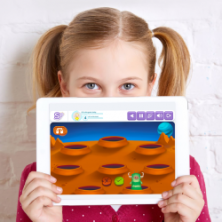In a world full of information, it is increasingly essential to maintain a sharp mind and strong memory. Cognitive training using memory games has become a powerful tool to maintain and improve our mental skills over time. Children, in their developmental stage, constantly absorb information and memory games are a powerful tool to boost their cognitive abilities. In this article, we will explore the benefits of memory games as a cognitive training tool.

Index
Memory and Learning
Memory, and in particular working memory, plays an important role in the learning process (Gathercole et al., 2004; Passolunghi & Lanfranchi, 2012). We use this memory system daily while carrying out different activities. Whether it is remembering what’s on the shopping list, reading a book or listening to someone speak and actively participating in the conversation. We must remember certain information and retrieve other information to be able to process and understand.
While at school, for reading, writing or arithmetic, children use working memory as though it were a mental blackboard on which information is kept active during manipulation (Gathercole and Alloway, 2008). A malfunctioning working memory often hinders the way some children cope with different school activities. In fact, they tend to forget instructions, especially those that are long. They may also forget parts of a text during writing and, in general, they are not able to manage recall and manipulation of information at the same time.
The Scientific Basis of Cognitive Memory Training for Children
Memory is a complex process involving the encoding, storage and retrieval of information. As children grow older, their brains undergo a period of neural plasticity that makes them especially receptive to learning. Several scientific studies have explored the effects of cognitive memory training in children, and promising results have been revealed.
A study published in the journal Educational Psychology in 2014 showed that it is possible to improve working memory with computerised memory games. In addition, students who participated in the study showed significant improvements in academic performance. Another study (Bergman-Nutley & Klingberg, 2014) revealed that cognitive memory training improved children’s working memory as well as their ability to understand instructions and had a positive impact on their mathematical skills.
How Cognitive Memory Training Works for Children
Cognitive memory training is based on scientific principles that take advantage of the brain’s plasticity. It involves a series of memory games designed to challenge and improve different aspects of memory, such as working memory, long-term memory and spatial memory. The key is to tailor the memory games to each child’s needs and level, ensuring that they are challenged but not overwhelmed.
Memory Games and Smartick Brain
In a world where the ability to process and remember information is essential, cognitive memory training stands out as a powerful tool for child development. Scientific studies support its benefits for children, including those with an individualized education program, providing new opportunities for learning and growth. This is why in Smartick Brain we have different games to exercise memory. Children can access Smartick Brain after each daily Smartick session. Sign up for Smartick for free to try our memory games and all the other cognitive training games in Smartick Brain.
References
- Bergman-Nutley, S., & Klingberg, T. (2014). Effect of working memory training on working memory, arithmetic and following instructions. Psychological research, 78, 869-877.
- Gathercole, S. E., Pickering, S. J., Knight, C., & Stegmann, Z. (2004). Working memory skills and educational attainment: Evidence from national curriculum assessments at 7 and 14 years of age. Applied Cognitive Psychology: The Official Journal of the Society for Applied Research in Memory and Cognition, 18(1), 1-16.
- Holmes, J., & Gathercole, S. E. (2014). Taking working memory training from the laboratory into schools. Educational Psychology, 34(4), 440-450.
- Passolunghi, M. C., & Lanfranchi, S. (2012). Domain‐specific and domain‐general precursors of mathematical achievement: A longitudinal study from kindergarten to first grade. British Journal of Educational Psychology, 82(1), 42-63.
Learn More:
- The Role of Working Memory in Learning Mathematics
- How Smartick Virtual World Games Might Help Your Child’s Math Achievement
- Searching for Fun Activities for Your Kids This Summer?
- Exercising Memory with SmartickBrain Games
- Attention Games: The Key to Fostering Sustained Concentration in Children








This is nice, keep it up.
Thank you very much for your comment, we hope you found our post helpful.😊